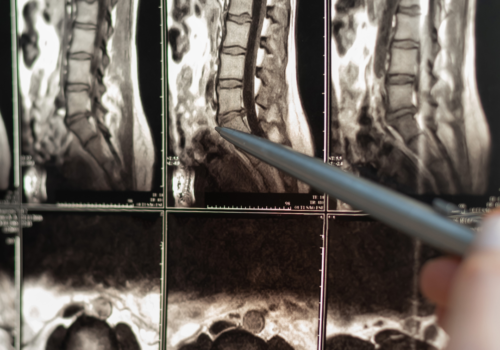Diagnostic Excellence: Understanding the Role of CT Urogram in Healthcare
Have you ever experienced a pesky symptom and wondered what it could possibly mean? It’s totally normal to feel concerned when your body starts sending out distress signals. But fear not! Today, we’re diving into some common symptoms and unraveling the mysteries behind them.
Pain When Urinating: A Burning Question
You know that sharp, burning sensation that makes you dread every trip to the bathroom? Yeah, that one. Pain during urination, also known as dysuria, is often a sign that something’s up with your urinary tract. Here are a few possible culprits, but we do advise having a CT urogram in New Jersey to be sure.
- Urinary Tract Infection (UTI): Ah, the notorious UTI. It’s like the unwelcome guest that crashes your body’s party. UTIs occur when bacteria invade your urinary system, causing inflammation and discomfort. The good news? They’re usually easily treatable with antibiotics.
- Sexually Transmitted Infection (STI): Yup, you read that right. Some STIs, like chlamydia and gonorrhea, can cause painful urination. If you’ve been getting frisky without protection, it might be time to get tested.
- Kidney Stones: Ouch! These tiny, crystal-like formations can wreak havoc on your urinary tract, leading to excruciating pain when you pee. If you suspect you have kidney stones, it’s best to seek medical attention pronto.
Other Common Symptoms & Their Meanings
But wait, there’s more! Here’s a quick rundown of some other common symptoms and what they might be trying to tell you:
- Fever: When your body temperature spikes, it’s usually a sign that your immune system is battling some sort of infection. Whether it’s the flu, a cold, or something more serious, a fever is your body’s way of saying, “Hey, we’ve got a problem here!”
- Fatigue: Feeling more tired than usual? It could be a sign of a variety of underlying issues, from lack of sleep to anemia to thyroid problems. Listen to your body and give it the rest it deserves.
- Headaches: Ah, the dreaded headache. While they can be caused by anything from stress to dehydration to staring at screens for too long, frequent or severe headaches may warrant a trip to the doctor’s office to rule out more serious conditions.
- Chest Pain: Don’t ignore that tightness in your chest—it could be a warning sign of a heart attack or other cardiovascular issues. Better safe than sorry, so if you experience chest pain, seek medical help immediately.
- Abdominal Pain: From indigestion to appendicitis, abdominal pain can be caused by a wide range of conditions. Pay attention to the location, severity, and accompanying symptoms to help pinpoint the cause.
What to Do Next
So, you’ve identified your symptom—now what? Here are a few steps you can take to get to the bottom of things:
- Keep a Symptom Journal: Track your symptoms, including when they occur, how long they last, and any factors that seem to trigger or alleviate them. This information can be invaluable when discussing your concerns with a healthcare provider.
- Do Your Research (But Don’t Self-Diagnose!): Thanks to the wonders of the internet, you can find information on just about any symptom imaginable. However, proceed with caution—while it’s okay to educate yourself, don’t fall into the trap of self-diagnosis. Leave that to the professionals.
- Seek Medical Advice: When in doubt, don’t hesitate to reach out to a healthcare professional. Whether it’s your primary care physician, a specialist, or an urgent care clinic, they can help you determine the underlying cause of your symptoms and recommend appropriate treatment.
FAQs: Your Burning Questions Answered
Q: Can stress cause physical symptoms? A: Absolutely! Stress can manifest in a variety of ways, from headaches to stomachaches to muscle tension. Taking steps to manage your stress levels, such as practicing relaxation techniques or seeking therapy, can help alleviate these symptoms.
Q: When should I be concerned about a symptom? A: While minor symptoms like a headache or stomachache are usually nothing to worry about, there are certain red flags that warrant immediate medical attention, such as chest pain, difficulty breathing, or sudden weakness or numbness. Trust your instincts—if something feels off, it’s better to err on the side of caution and seek medical help.
Q: Can certain medications cause symptoms? A: Absolutely. Some medications can cause side effects ranging from mild discomfort to serious complications. If you suspect that your symptoms may be medication-related, don’t hesitate to discuss your concerns with your healthcare provider.
Wrapping Up
And there you have it, folks—a crash course in common symptoms and what they might mean for your health. Remember, your body is a finely tuned machine, and when something doesn’t feel right, it’s important to pay attention and take action. Whether it’s scheduling a check-up with your doctor or making lifestyle changes to promote better health, your well-being is worth investing in. Stay vigilant, stay informed, and above all, stay healthy!





